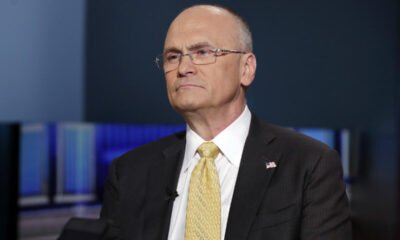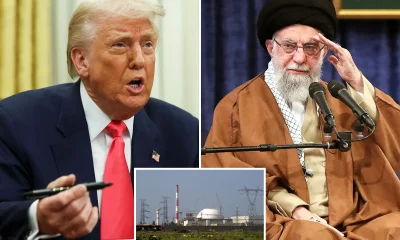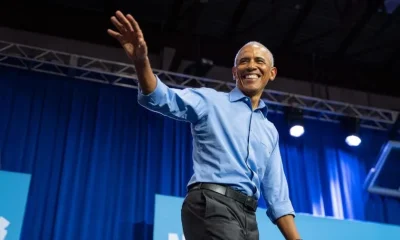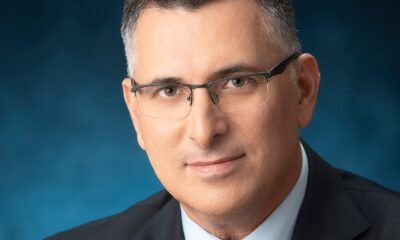Election 2024
‘I am absolutely voting for Donald Trump’: Undecided voters react to Biden’s debate performance
Biden’s Faltering Debate Display Shakes Undecided Voters, Strengthens Trump’s Appeal
In a tightly contested presidential race, debates play a critical role in shaping voters’ perceptions, especially among those who are undecided. The recent debate between Joe Biden and Donald Trump has garnered significant attention due to Biden’s performance, which many viewers found lacking. The reactions of undecided voters to this debate could have substantial implications for the election outcome.
Of the 13 undecided voters interviewed by Reuters, 10 described Biden’s performance in overwhelmingly negative terms. The descriptors “feeble,” “befuddled,” and “embarrassing” were commonly used, reflecting a broad sentiment of disappointment and concern.
Gina Gannon, 65, Georgia, Previously a Biden supporter, Gannon was particularly critical, citing concerns over Biden’s apparent weakness and confusion. Her reaction underscores the anxiety some voters feel about Biden’s ability to project strength on the global stage. Gannon unequivocally stated, “I am absolutely voting for Donald Trump now.”
Meredith Marshall, 51, Los Angeles, Initially a Biden voter, Marshall expressed shock at Biden’s performance, pointing to a perceived lack of mental acuity. Despite her dislike for Trump, she is now leaning towards him, encapsulating a common theme of reluctant support for Trump due to doubts about Biden.
Scott Harrington, Harrington’s reaction was one of profound disappointment. Despite his intense dislike for Trump, he found Biden’s performance worse than expected and is now considering abstention, highlighting the debate’s potential to drive voter disengagement.
Not all reactions were negative. Some voters found aspects of Biden’s performance acceptable or even commendable:
Ashley Altum, initially torn between Biden and a third-party candidate, Altum leaned towards Biden post-debate, appreciating his direct responses despite his slip-ups. This illustrates that Biden’s approach still resonates with some voters who prioritize clarity and directness.
The debate has underscored the critical importance of performance in swaying undecided voters. Biden’s perceived faltering has amplified existing concerns about his age and mental capacity, a narrative that Trump and his supporters are likely to exploit. The debate’s aftermath suggests a shift among undecided voters towards Trump, albeit sometimes reluctantly.
The reactions from undecided voters following the debate indicate a troubling trend for Biden. While debates traditionally have limited impact, the current polarized and closely contested political climate means that every voter counts. Biden’s performance may have solidified doubts among undecided voters, pushing them towards Trump and potentially influencing the election outcome. As the campaign progresses, both candidates will need to address these concerns directly to sway the critical undecided voter base.
Election 2024
Post-Election Unrest in Mozambique Drives Thousands to Malawi

Escalating violence and contested election results force Mozambicans to seek refuge, as unrest disrupts daily life and business operations.
Mozambique’s political crisis has reached a boiling point, with violent unrest over October’s disputed elections forcing thousands of families to flee to neighboring Malawi. Malawian authorities have reported an influx of more than 2,000 Mozambican households into Nsanje district, highlighting the human toll of the escalating conflict. The situation is exacerbated by widespread violence, which has claimed hundreds of lives and triggered significant disruption across Mozambique.
The unrest stems from Mozambique’s October elections, where the ruling Frelimo party claimed victory amid allegations of electoral fraud from the opposition. The Constitutional Council’s validation of the results earlier this week intensified tensions, prompting deadly protests that have now spilled into the streets, businesses, and institutions. Independent observers and monitoring groups, including Plataforma Decide, report alarming death tolls of 125 since the court’s decision and 252 since late October, painting a grim picture of the unrest’s scale.
Businesses in Mozambique’s capital, Maputo, have not been spared from the turmoil. Many, including banks, were shuttered on Friday in response to a deadly prison riot earlier in the week that left 33 dead and enabled over 1,500 prisoners to escape. This riot, compounded by unrest near major industrial sites, underscores the growing challenges to stability.
International corporations have also been caught in the crossfire. Operations at Gemfields Group’s ruby mine, a key player in Mozambique’s mining sector, were temporarily halted after protesters attempted to breach a residential site for mine employees, setting fire to structures. The incident ended with security forces killing two individuals, reflecting the volatility surrounding Mozambique’s resources and foreign investment. Similarly, companies like South32 and Sasol are facing heightened risks as the unrest continues to disrupt operations.
The political dimension of the crisis remains fraught. Venancio Mondlane, the opposition leader who came second in the presidential race, has rejected the election results and called for sustained protests. While urging supporters to avoid looting and vandalism, Mondlane’s stance indicates that the opposition will not back down, further polarizing the nation.
Mozambique’s trajectory has historical precedents that complicate its present crisis. Frelimo, the party in power since independence from Portugal in 1975, has faced accusations of autocratic governance and electoral manipulation. This year’s elections drew criticism from Western observers, who labeled the process neither free nor fair. These allegations fuel public resentment, exacerbating the already fragile political landscape.
For Malawi, the influx of Mozambican refugees presents a new set of challenges. Local officials describe the urgent need for humanitarian aid as displaced families arrive in dire conditions. The situation calls for regional and international attention, not only to address the immediate needs of the displaced but also to prevent further destabilization of Southern Africa.
The ongoing unrest is a litmus test for Mozambique’s political resilience and its relationship with foreign investors. As businesses shutter and protests intensify, Mozambique risks long-term damage to its reputation as a viable destination for economic partnerships. Moreover, the human cost of the conflict—seen in both the displacement of families and the loss of lives—underscores the pressing need for a negotiated resolution.
This crisis reflects a broader pattern of contested elections and political instability across the region, raising questions about governance, democratic processes, and the role of international actors in fostering peace and accountability. Without meaningful intervention, Mozambique’s unrest could escalate further, with devastating consequences for its people and the broader region.
Election 2024
Romania’s top court annuls presidential election result

Romania’s Constitutional Court has nullified the results of its first-round presidential election, halting the rise of far-right candidate Calin Georgescu and throwing the country’s political future into turmoil. Allegations of Russian interference loomed large over the election, intensifying geopolitical tensions in a region critical to NATO’s security framework.
The decision, announced Friday, invalidates the narrow victory of Georgescu, who secured 22.9% of the vote against his centrist rival Elena Lasconi’s 19.2%. This annulment effectively resets the electoral calendar and voids the second-round runoff scheduled for Sunday.
Romania’s intelligence agencies uncovered extensive evidence of Russian meddling, including cyberattacks and manipulation of social media algorithms, notably on TikTok, which Georgescu leveraged to bolster his campaign. Over 85,000 cyberattacks targeted election infrastructure, attributed to a state actor with “considerable resources.”
Declassified reports also linked Georgescu’s campaign to pro-Russian narratives, with analysts warning his presidency could undermine Romania’s pro-Western alignment and NATO commitments. Although Georgescu denies overt Russian sympathies, his rhetoric—calling Ukraine an “invented state” and advocating an end to support for Kyiv—aligns with Moscow’s strategic interests.
The U.S. State Department expressed concern, warning that a shift in Romania’s geopolitical stance would harm bilateral security cooperation. Romanian officials echoed this sentiment, calling Georgescu’s rise a potential victory for Russian President Vladimir Putin.
The court’s ruling follows widespread protests in Bucharest, where demonstrators opposed Georgescu’s ultranationalist platform and raised concerns about electoral fraud. Crowds brandished banners defending Romania’s place in the EU and NATO, highlighting fears of democratic backsliding.
While Georgescu’s platform resonated with voters frustrated by economic hardships, his critics argue that his sudden political ascent, aided by alleged foreign interference, poses a threat to the country’s democratic and strategic trajectory.
This election crisis underscores the vulnerabilities of emerging democracies to hybrid warfare, where disinformation and cyberattacks destabilize political processes. Romania, a NATO member bordering war-torn Ukraine, is now a focal point in the broader contest between Western alliances and Russian influence.
With the electoral process reset, the Romanian government faces the urgent task of ensuring a fair and transparent election. This decision also signals a critical test for Romania’s democratic institutions as they navigate both internal political divisions and external threats.
Romania’s annulled election serves as a stark reminder of the challenges democracies face in an age of pervasive digital interference and geopolitical rivalry. The global stakes in this electoral saga extend well beyond Romania, reinforcing the importance of safeguarding electoral integrity in a volatile world.
Election 2024
Mogadishu Mobilizes the Army to Bring the Juba Region Back Under Control

The Somali federal government has deployed military forces to the Juba region following the contentious re-election of Ahmed Islam Mohamed, widely known as “Madobe,” as Jubaland’s president. The move underscores deepening rifts between Mogadishu and Jubaland, with the federal government rejecting the election as illegitimate and accusing Madobe of defying constitutional reforms.
The dispute centers on Somalia’s transition to a centralized political structure under a new constitutional framework, which seeks to replace the indirect, clan-based electoral system with direct elections. Madobe’s administration, however, has maintained the status quo, organizing its own elections in defiance of the federal government.
In a show of force, Mogadishu dispatched seven military aircraft loaded with troops, including elite Haram’ad and Gorgor units trained by Turkey, to Ras Kamboni. Federal forces aim to secure key bases previously occupied by Kenyan troops under the African Union Transition Mission in Somalia (ATMIS), whose mandate is set to end this year.
Military reinforcements are also expected to be deployed to Gedo, particularly in the strategic towns of Ras Kamboni and El Wak near the Kenyan border. Federal Prime Minister Hamza Abdi Barre has reportedly initiated negotiations with Jubaland forces in Afmadu, seeking to integrate regional troops into the federal army as part of a broader strategy to consolidate control over the Juba region.
Madobe, who secured a second term with 55 out of 75 parliamentary votes, remains steadfast in his opposition to Mogadishu’s authority. During his inauguration, he dismissed federal government efforts as interference, declaring, “There is no other president in Juba but me.”
Madobe accused Mogadishu of destabilizing the region by deploying federal troops to Ras Kamboni, framing the move as a diversion from the ongoing battle against Al-Shabaab. He also criticized the federal government for undermining Jubaland’s autonomy, particularly its role in managing local security and addressing the persistent threat of terrorism.
“We will not tolerate any attempt to destabilize Jubaland,” he said, vowing to defend his administration and the region’s stability.
The federal government has taken a hardline approach, rejecting the Jubaland elections as unconstitutional and instructing the Attorney General to file a lawsuit against Madobe at the Supreme Court. Prime Minister Barre emphasized the government’s commitment to upholding the rule of law, stating, “Today’s actions reflect our determination to ensure electoral integrity and adherence to the constitution.”
The standoff comes amid ongoing tensions between Mogadishu and regional administrations, notably Puntland, which declared self-governance in March, rejecting the federal government’s electoral reforms. Jubaland’s resistance further complicates efforts to centralize power, raising fears of a broader political and military crisis.
The escalating conflict also risks diverting resources and attention from the fight against Al-Shabaab, which controls significant portions of Jubaland. The jihadist group has exploited divisions between federal and regional forces in the past, and analysts warn that renewed hostilities could create further openings for insurgent activity.
Madobe’s call for Ethiopian forces to remain in Gedo, despite federal objections, adds another layer of complexity. While Mogadishu seeks their withdrawal amid tensions with Addis Ababa, Madobe views their presence as critical to counterterrorism efforts.
The clash between Mogadishu and Jubaland highlights the fragility of Somalia’s federal system and the challenges of transitioning to a more centralized, democratic governance structure. As federal forces continue their operations, the risk of direct confrontation with Jubaland’s troops looms large, threatening the region’s stability.
Resolving this crisis will require careful negotiation and a willingness from both sides to prioritize Somalia’s broader interests over local power struggles. For now, however, the escalating rhetoric and military posturing suggest that a peaceful resolution remains elusive.
Election 2024
Turbulence in Jubaland: Tensions Soar Following Madobe’s Controversial Reelection

A Standoff Between Mogadishu and Jubaland Threatens to Ignite into Conflict Amidst Political Turmoil
As tensions escalate between Somalia’s Federal Government and Jubaland following President Ahmed Madobe’s contentious reelection, the region teeters on the brink of armed confrontation, revealing deep-rooted political divides and a looming crisis of governance.
A Political Powder Keg
Somalia’s turbulent political landscape just erupted into a full-blown confrontation. With tensions skyrocketing between the Federal Government in Mogadishu and Jubaland following the reelection of President Ahmed Mohammed Islam—known as Ahmed Madobe for his audacity—an escalating standoff threatens to plunge the region into chaos. What started as a routine electoral process on Monday has morphed into a potential flashpoint for conflict, with armed forces amassing on both sides. This narrative isn’t just about political squabbles; it’s about a nation grappling with its identity and governance in a global spotlight.
The Breaking Point: A Contested Election
In a controversial move, President Madobe was re-elected for a third term by a margin of 55 out of 75 votes. This decision has sent shockwaves throughout the political establishment, as many believe this election was shrouded in manipulation and disregard for electoral laws. The Federal Government was quick to respond, rejecting the legitimacy of Madobe’s victory and asserting that his reelection contradicts Jubaland’s own constitution, which limits presidents to two terms. The critical legal battle is heating up, but it comes at a time when Somalia can least afford it.
Armed Forces at the Ready: A Match Waiting to Ignite
The backdrop to this political drama is alarming. Both sides have mobilized troops near Ras Kamboni, a conflict hotspot close to the Kenyan border, raising fears of armed confrontation. Mogadishu has reportedly dispatched a contingent of 150 troops, while Jubaland has responded with a deployment of 300 military personnel. This military buildup reflects a deterioration of dialogue, igniting speculation about the possibility of civil conflict. If peaceful resolutions aren’t prioritized and aggression triggers open hostilities, the consequences could ripple across the region and beyond.
International Perspectives and Local Dynamics
As voices of concern emerge from international partners, who urge all involved to step back from the brink, the internal narrative grows more complex. Mogadishu’s government has labeled Madobe’s actions as a priority of personal ambition over Somalia’s unity. Prime Minister Hamse Abdi Barre has underscored a critical agreement made in May 2023, which sought to initiate a one-person-one-vote electoral system—a proposal that Met the fierce resistance in Jubaland. However, this controversial shift to a more democratic electoral process has stirred deep-seated anxieties within Somali society, raising questions about its feasibility and implications for regional stability.
Further complicating the matter is Jubaland’s pivotal geographical positioning. With Ethiopia and Kenya viewing the state as a strategic buffer zone against regional instability, the implications of a potential conflict here shouldn’t be underestimated. If tensions manifest into violence, external influences could exacerbate the predicament, pulling regional powers into a quagmire that could easily escalate into broader conflict.
The Struggle for Legitimacy
This crisis presents a microcosm of Somalia’s broader struggles with governance. With the Federal Government accusing Madobe of violating not only electoral laws but the fundamental principles of democracy itself, the issue becomes one of legitimacy. Critics of the government argue that while Madobe might be framed as the villain, the Federal Government’s own actions toward Jubaland have often been met with suspicion. Accusations of power plays and ulterior motives abound, showcasing a fractured political landscape where loyalties are tenuous at best.
As the legal implications unfold, with the Attorney General poised to take action against Madobe, the stakes grow ever higher. The political theater surrounding this election raises pressing questions about the future of democratic governance in Somalia. Will the conflict spiral out of control, or can back-channel negotiations avert disaster?
The rising tensions in Somalia cannot be ignored. The region is at a perilous crossroads, faced with the consequences of factional politics, military buildups, and one challenged election. While Madobe’s supporters celebrate a contested victory, the storm that looms may very well echo beyond Jubaland’s borders, with ramifications that could reshape Somalia’s political landscape for years to come. Now more than ever, this moment demands clarity, open dialogue, and, most importantly, a commitment to uphold the tenets of democracy that lie at the heart of any stable nation. As this narrative unfolds, the world watches—primed for what comes next in this saga of power, resilience, and an ever-elusive quest for peace.
Election 2024
Namibia Poised to Elect Its First Female President
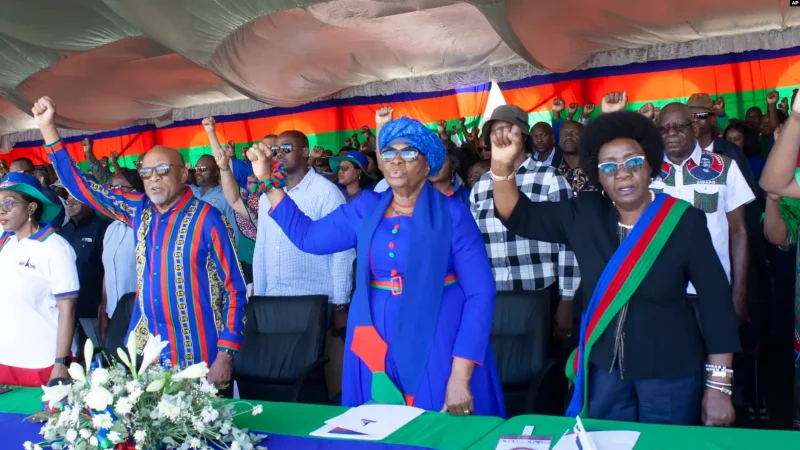
Namibia may witness a historic moment as Vice President Netumbo Nandi-Ndaitwah stands on the brink of becoming the country’s first female president in Wednesday’s presidential elections. If victorious, her leadership would mark a significant milestone in the nation’s democratic journey, with broader implications for women’s representation across Africa.
At least 1.4 million voters, nearly half the population, are registered to cast their ballots in an election that also determines control of the National Assembly. Nandi-Ndaitwah’s party, the South West Africa People’s Organization (SWAPO), has been the dominant political force since Namibia gained independence from South African apartheid rule in 1990.
Challenges Facing SWAPO’s Legacy
While SWAPO retains a historical advantage due to its role in Namibia’s liberation, the party’s grip on power has weakened in recent years. In 2019, SWAPO lost its two-thirds parliamentary majority for the first time since 1994. The loss has been attributed to widespread discontent fueled by allegations of corruption and the “Fishrot” scandal, which implicated senior government officials in misappropriating funds from Namibia’s lucrative fishing industry.
Political analyst Henning Melber has warned that SWAPO must adapt to shifting voter demographics. Younger Namibians, or “born-frees”—those born after independence—are less swayed by the party’s liberation legacy and more concerned with governance and economic performance.
“The erosion of legitimacy as a former liberation movement is a challenge SWAPO must address if it hopes to maintain influence,” Melber noted.
Nandi-Ndaitwah’s Promises and Critics
At 72 years old, Nandi-Ndaitwah has campaigned on addressing Namibia’s pressing socioeconomic issues, including high youth unemployment, currently estimated at 20%, and economic stagnation exacerbated by global downturns. She has pledged to create 500,000 jobs over the next five years, backed by a $4.7 billion investment plan—an ambitious promise her critics argue lacks feasibility given Namibia’s modest economic resources.
She has also emphasized policies that support gender equality, including reproductive rights, equal pay, and improved healthcare access. If elected, Nandi-Ndaitwah would join the ranks of Africa’s trailblazing female leaders, such as Ellen Johnson Sirleaf of Liberia and Joyce Banda of Malawi.
Opposition Challenges
SWAPO faces formidable opposition from parties like the Independent Patriots for Change (IPC), led by former dentist Panduleni Itula, and the Affirmative Repositioning Party, spearheaded by university professor Job Amupanda. Both parties have tapped into growing discontent among Namibia’s youth and urban populations, presenting themselves as alternatives to SWAPO’s long-standing dominance.
Shifting Political Tides in Southern Africa
Namibia’s elections occur amid broader political upheaval in southern Africa. South Africa’s African National Congress (ANC) recently lost its parliamentary majority for the first time in 30 years, while Botswana’s ruling party was ousted after nearly six decades in power. Even in Mauritius, known for its political stability, opposition parties achieved a landslide victory.
Disputed results in Mozambique have led to deadly protests, with at least 30 fatalities reported as opposition groups challenge the ruling Frelimo party’s victory.
A Landmark Moment for Namibia?
Should Nandi-Ndaitwah secure the presidency, her leadership would symbolize progress in a region where women’s political representation remains limited. Political science lecturer Erika Thomas highlighted the importance of Nandi-Ndaitwah fostering transparency and inclusivity if elected.
“She must prioritize policies that empower women and increase their participation in political structures,” Thomas emphasized.
As Namibians head to the polls, the outcome will not only determine the country’s leadership but could also signal a turning point in its political and social trajectory. The election’s result may serve as a reflection of Namibia’s readiness to embrace change amid the challenges of governance, economic reform, and inclusivity.
Election 2024
Jubbaland Re-Elects Ahmed Madobe Amid Federal Government Dispute

Ahmed Mohamed Islam Madobe has been re-elected as president of Somalia’s Jubbaland state for a third term, despite strong opposition from the federal government and the emergence of a parallel political process orchestrated by rivals.
Madobe secured 55 votes in the Jubbaland House of Representatives, significantly outpacing his closest challenger, Faisal Mohamed Mataan, who garnered 16 votes, and Abubakar Abdi Hassan, who received four. The results were announced by Abdi Mohamed Abdirahman, Speaker of the Jubbaland legislature.
Expressing gratitude, Madobe commended the regional parliament for their confidence in his leadership and praised his challengers for accepting the outcome of the vote.
Madobe’s re-election follows a contentious week in which opposition groups convened their own parliament and elected Senator Ilyas Gabose as a rival president. The opposition also named alternative parliamentary speakers, intensifying the already fraught political standoff in Jubbaland.
These developments underscore the deepening divisions between Jubbaland’s administration and federal authorities in Mogadishu. Somali Prime Minister Hamse Abdi Barre has dismissed Madobe’s re-election as unconstitutional, citing term limits, and accused him of undermining efforts toward national unity.
The federal government continues to advocate for a unified, universal suffrage system across Somalia, aimed at reducing the influence of regional leaders in determining political outcomes. However, this proposal has faced resistance not only from Madobe but also from Puntland’s leadership, who argue it encroaches on regional autonomy.
Critics of Madobe’s administration, including Barre, have labeled his leadership as a roadblock to these reforms, accusing him of clinging to power at the expense of broader state-building efforts.
Madobe’s re-election extends his tenure in a politically volatile region that plays a key role in Somalia’s counterterrorism efforts and relations with neighboring Kenya. However, the parallel election by opposition groups threatens to deepen political fragmentation, potentially complicating federal and international efforts to stabilize Somalia.
The ongoing dispute highlights the challenges of reconciling regional autonomy with federal authority in a country still grappling with decades of conflict and governance challenges. As tensions persist, both Jubbaland and Somalia at large face an uncertain political future.
Election 2024
Mohamud Hashi: Somaliland’s “Joker” and Political Powerbroker
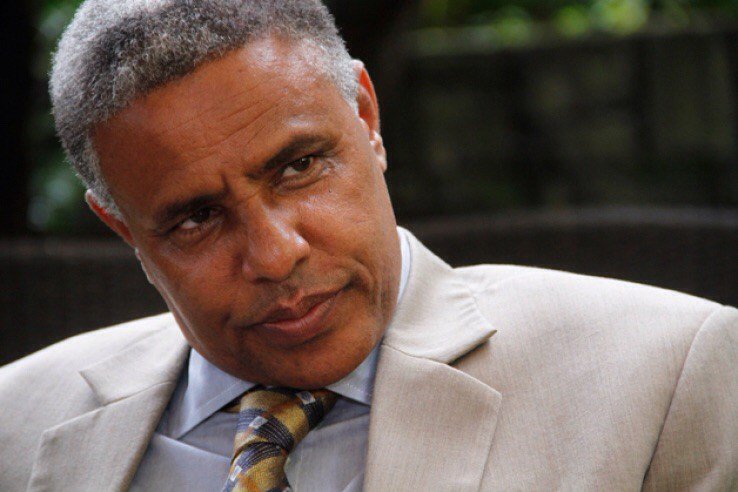
Mohamud Hashi, known among his supporters as the “Joker” of Somaliland politics, embodies a blend of strategic acumen, longevity, and the ability to adapt to an ever-changing political landscape. With a political career spanning over 35 years, Hashi has evolved from a parliamentarian and government minister to the leader of the Kaah Party—a role that cements his legacy as a key player in Somaliland’s political arena.
A Storied Career and Rising Influence
Hashi’s political journey began in 1993 when he joined Somaliland’s Parliament. At the time, he was a prominent member of the opposition and served as a parliamentarian for 12 years. He later took on significant roles, including mayor of Burco and ministerial positions in successive governments, becoming a household name in Somaliland’s political discourse.
Despite his long tenure, Hashi has been described as a “white politician,” a term implying a relatively unblemished reputation in a political culture often marked by factionalism and patronage. Abdinasir Haji, an expert on Somaliland politics, points out that Hashi’s rise and sustained relevance stem from his ability to build alliances and influence key decision-makers.
Hashi himself has acknowledged his role as a “King Maker,” reflecting his knack for shaping political outcomes, even from behind the scenes. His supporters’ chants of “political hero” during his victories within Kaah attest to his enduring popularity and his ability to galvanize a loyal following.
A Vision for Political Change
Hashi has publicly articulated a desire to overhaul Somaliland’s political culture, emphasizing a departure from personality-driven leadership. In his own words, the Kaah Party’s mission is “a vision to change a vision.” This reflects his commitment to institutional reform and a broader, issue-based political dialogue.
However, his critics argue that his strategies—often centering on alliances and coalitions—are primarily tactical maneuvers to secure influence. Hashi’s ability to negotiate political spaces, such as his partnership with the Waddani Party, underscores his pragmatism, but it also raises questions about the ideological consistency of his reformist agenda.
From Kulmiye to Kaah: A Clash of Titans
As a co-founder of the Kulmiye Party, Hashi was instrumental in the party’s ascent to power, including its 2017 election victory under President Muse Bihi. However, his relationship with Bihi soured when the anticipated transition of Kulmiye leadership to Hashi did not materialize. This fallout marked a turning point in his career, prompting his eventual departure from Kulmiye and the establishment of the Kaah Party.
Kaah emerged amidst political turbulence, particularly during disputes over the legality of opening political associations. Hashi seized this opportunity to consolidate his position, rallying support from parliamentarians and former allies across party lines. His ability to navigate these disputes reflects his deep understanding of Somaliland’s political fabric.
Alliance with Waddani: A Strategic Gamble
Hashi’s recent alliance with the Waddani Party, which secured the presidency in Somaliland’s most recent elections, has further elevated his political clout. While the specifics of his influence in the upcoming administration remain uncertain, Abdinasir Haji notes that their coalition agreement likely guarantees Kaah a stake in the new government. This could manifest in ministerial appointments or advisory roles, reinforcing Hashi’s position as a key player in shaping Somaliland’s political future.
Hashi himself, in a pre-election interview, emphasized the significance of this alliance, stating that it would ensure Kaah’s active participation in governance. However, the extent of this influence will largely depend on the dynamics within the coalition and the evolving priorities of the Waddani-led administration.
A Politician of Contradictions
Mohamud Hashi’s career exemplifies the duality of Somaliland’s politics. On one hand, he is celebrated as a reformist and a visionary committed to institutional change. On the other, his reliance on alliances and political maneuvering invites scrutiny over his methods and long-term objectives.
His supporters see him as a “political hero” and a unifying figure who can transcend party lines. Yet, his detractors question whether his strategies truly serve the nation’s democratic aspirations or merely entrench his own influence within the system.
The “Joker” in Somaliland’s Future
As Somaliland moves into a new political chapter under Waddani’s leadership, Mohamud Hashi’s role will be closely watched. Whether he continues as a powerbroker behind the scenes or assumes a formal position within the government, his influence is undeniable.
Hashi’s journey from parliamentarian to mayor, minister, and party leader underscores his adaptability and resilience. His political legacy, marked by both alliances and reforms, reflects the complexities of Somaliland’s democratic experiment. For now, he remains the “Joker” in the nation’s deck—a wildcard capable of reshaping its political fortunes.
Election 2024
Somaliland Prepares for Presidential Elections Amid Regional Tensions

As Somaliland gears up for its presidential elections scheduled for November 13, 2024, over one million registered voters will head to the polls to determine their leader for the next five years. With incumbent President Muse Bihi Abdi representing the ruling Peace, Unity, and Development Party (KULMIYE), he faces competition from Abdirahman Mohamed Abdullahi, known as “Irro” of the Waddani party, and Faisal Ali Warabe of the Justice and Development Party (UCID).
Candidates and Their Promises
In interviews, all three candidates have committed to strengthening Somaliland’s democracy, promoting economic development, and pushing for international recognition—something Somaliland has sought for 33 years without success.
President Muse Bihi Abdi, who has served since 2017, has highlighted the potential progress on a maritime deal signed with Ethiopia earlier this year. “Somaliland is ready to implement the MOU [Memorandum of Understanding], and we are awaiting Ethiopia so we can move forward,” he stated. He emphasized that this agreement serves both Somaliland’s need for recognition and Ethiopia’s need for access to the sea.
Irro, who previously served as Speaker of the House of Representatives for over 11 years, indicated his intention to resume talks with Somalia regarding Somaliland’s statehood aspirations. “If elected, I will resume the talks if the Somaliland interest lies there,” he remarked, acknowledging the pressure from the international community to engage in dialogue despite the longstanding goal of gaining recognition.
Faisal Ali Warabe proposed establishing a national unity government to achieve recognition for Somaliland. “If elected, I will lead Somaliland to recognition and a more prosperous road,” Warabe asserted.
Regional Tensions
The upcoming election occurs during a period of heightened tensions between Somalia and Ethiopia, primarily revolving around the recent Memorandum of Understanding. This agreement allows Ethiopia access to a 50-year lease of 20 kilometers of the Red Sea coastline, a deal that Somalia views as a direct threat to its sovereignty.
The signing of this agreement in January 2024 led to significant backlash in Mogadishu, prompting Somalia to expel Ethiopian diplomats and close Ethiopian consulates in the region. Despite the response, Ethiopian officials maintain the deal does not encroach on Somalia’s territorial integrity.
Additionally, previous rounds of talks mediated by Turkey in July and August 2024 have failed to resolve the dispute, with Somalia insisting on Ethiopia’s withdrawal from the agreement and Ethiopia maintaining its position.
Looking Ahead
Somaliland’s last presidential elections in 2017 faced significant delays, attributed to technical and financial constraints, sparking criticism from opposition parties. This electoral process will be crucial for Somaliland’s political future, especially in light of the ongoing regional tensions and its quest for international recognition.
As the elections approach, the Somaliland National Electoral Commission has emphasized its commitment to a transparent and fair electoral process. The outcome will not only affect the political landscape within Somaliland but could also have broader implications for the region’s diplomatic relations and stability. Voters will decide if they wish to continue under Bihi’s leadership or if they will embrace a new direction offered by Irro or Warabe.
-

 Minnesota2 months ago
Minnesota2 months agoFraud Allegations Close In on Somalia’s Top Diplomats
-

 Middle East2 months ago
Middle East2 months agoTurkey’s Syria Radar Plan Triggers Israeli Red Lines
-

 Editor's Pick2 months ago
Editor's Pick2 months agoWhy India Is Poised to Become the Next Major Power to Recognize Somaliland
-

 ASSESSMENTS2 months ago
ASSESSMENTS2 months agoSomalia’s Risky Pact with Pakistan Sparks Regional Alarm
-

 Analysis2 months ago
Analysis2 months agoTurkey’s Expanding Footprint in Somalia Draws Parliamentary Scrutiny
-

 Analysis2 months ago
Analysis2 months agoRED SEA SHOCKER: TURKEY’S PROXY STATE RISES—AND ISRAEL IS WATCHING
-

 Somaliland1 month ago
Somaliland1 month agoF-35s Over Hargeisa: The Night Somaliland’s Sovereignty Went Supersonic
-

 Somalia2 months ago
Somalia2 months agoIs Somalia’s Oil the Price of Loyalty to Turkey? MP Blows Whistle on Explosive Oil Deal










